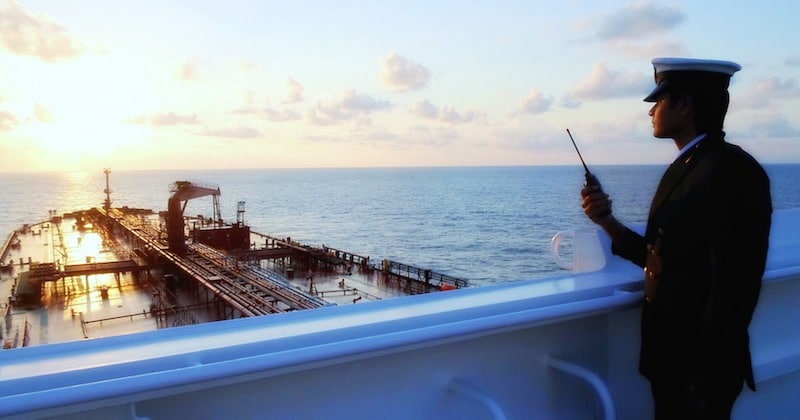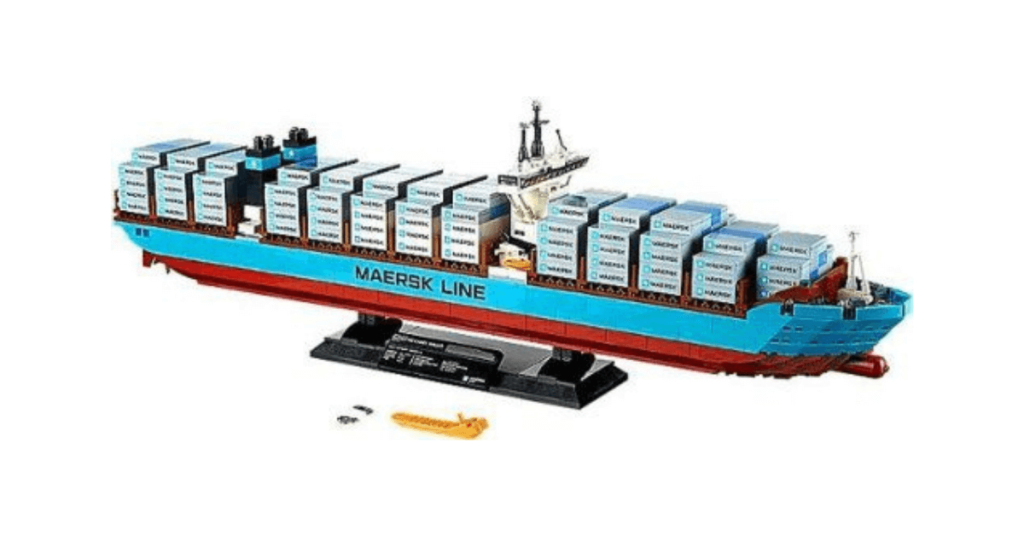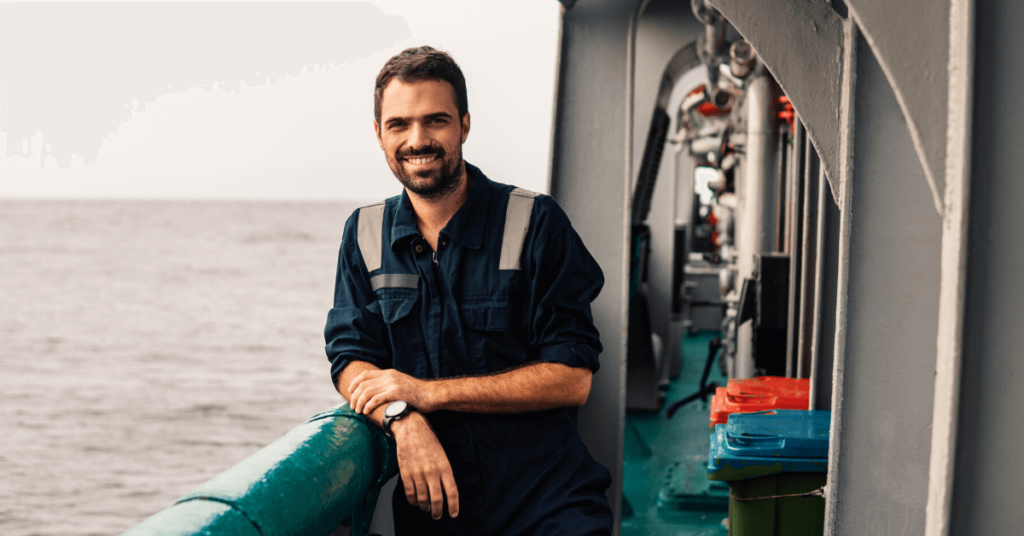Little Known Facts About Magic Of Savings Seafarers Should Know
This is the third article in the personal financial planning for seafarers series by the very experienced Chief Engineer Rajeeve Kaushik. You can read the previous articles of the series here – Importance of Financial Planning for Seafarers & 10 Common Financial Mistakes Seafarers Make
Savings are an important part of Human Nature. In fact even animals and birds have been known to save food for “A Rainy Day”. If you are an engineer on board ships you would have realised the importance of extracting the last bit of energy from every drop of fuel, also called the “saving of fuel.”
In my second article 10 COMMON FINANCIAL MISTAKES SEAFARERS MAKE, you would have studied a savings table and discovered that even a small amount saved by seafarers early in life and continued for a long time has the ability to produce mind boggling returns. However this is no magic but simply mathematics which comes into play when you start putting yourself under “discipline saving.”
When it comes to financial planning, there are broadly two types of savings that every human being practices even without knowing- Direct or Active Savings and Indirect or Passive savings.

This you may not find in any Economics text book, but since I have elevated savings to an important action, we will treat it as a philosophy.
Let’s get a bit deeper!
DIRECT or ACTIVE Savings: are those that a person does by putting a part of his earnings aside; whether in a bank, piggy bank or under his mattress.
INDIRECT or PASSIVE Savings: in my opinion happen when we make conscious alternatives to our expenditures or defer certain expenditure to a future date. e.g. If you decide to buy a lesser priced (I will not say cheaper as it does not sound good) mobile or a car. You save some money which is yours, which otherwise would not have been with you.
Another example is that you decide to pay off your overdue credit card bill by withdrawing cash from your bank account which is earning lesser interest than what you are paying for your credit card outstanding.
Both the above savings will help you boost, what I call your CORPUS.
CORPUS: Since your pay check at any given time or at any rank will always be fixed and limited, this corpus is what we will seek to create and boost by various methods in future. It is this corpus that you will aim to maximise by adopting healthy saving habits and healthy spending habits. This corpus will consist of Bank account, Fixed Deposits, Post Office schemes, Shares (if you will choose to invest in them), Mutual funds (which you must) etc.
The insurances that you will adopt for health, accident, House and life will not come into this Corpus directly because they are only for risk coverage. However, since they will enable you to cut down on unforeseen expenditure such as illness, accident, Fire/theft at home or other similar emergencies. You can consider this to be an enhancement on your corpus.
Whenever in future you calculate your complete net worth you should understand that it is same as what we are calling corpus.
Having said all that now comes the most difficult part of actually saving in an optimal manner!

Your salary from ships is directed to your bank account via the monthly allotment route. First from a legal standpoint please ensure that you have correct type of bank account as per your country’s rules.
e.g. In India the expatriates (called NRIs- those who stay for less than 182 days in India) are required to have NRE savings accounts. This is a specific account for NRIs where funds should be parked for only short periods of time, since the rate of interest is very low. It is advised to keep funds for about 3 months of home expenses in NRE accounts. Remaining money if you do not need for more than 1 year, can be shifted to NRE FIXED deposits. I will again reiterate that if you need this money within 1 year, then do NOT put it in Fixed Deposits or term deposits, as you will not earn any interest even if you break or liquidate your deposit just 1 day before the 1 year period.
These rules are not made by banks, but by RBI (Reserve Bank of India), so do not be misguided by the bank if it advises you otherwise.
FCNR (B) deposits are also fixed deposits, but those maintained in major foreign currencies, in India. To open these accounts you have to give instructions to your bank by filling a form, before or with the remittance which comes to the bank. Since for seafarers the salary is remitted by the ship owner/operator, and the date is not fixed, it is better to leave some pre-signed forms with the bank manager/relationship manager/relatives at home. This type of deposits should be opened if it is expected that the home currency (Indian Rupee in this case) will depreciate, or if you feel that you will need foreign currency in future for the purpose of your exams abroad or some other purpose. Since the minimum period for these deposits in India is also 1 year, the deposit should be started only if you do not need this money for more than a year. Of course if there is a marked depreciation in Rupee, you can liquidate the deposit to benefit from the higher exchange rate. Such benefits of course, more out of chance than design, e.g. The heavy depreciation in the Russian Rouble may have helped those who maintained some type of bank account in USD.
Now the question arises what we can do so that our monthly salary earns more than the minuscule rate of interest, which you will be earning by putting it in various deposits in the bank, and yet retain the option of taking out your money when you want.
LIQUID FUNDS
At this stage I am introducing you to another concept of monetary management called MUTUAL FUNDS. As the word suggests, these are cumulative deposits initiated by certain Finance Companies called AMCs (Asset Management Companies). There are two types of Mutual Funds: EQUITY and DEBT (also called Fixed Income Funds). These funds exist in all countries, in India they are very well regulated by the government and it’s nominated body called SEBI.
- Liquid funds are a category of these Debt Funds which invest in giving loans to the government and big corporations.
- In LIQUID FUNDS you can invest only in Indian Rupees or the local currency of your country.
- After you have deposited your funds, your deposit grows each and every day by a small amount which is a little more than the government bank rate.
- After this whenever you wish to withdraw your money for any need, you can do so by filling a redemption form or by Online Transaction. Within 24 hours, the money will be deposited in your same registered bank account, from where the payment was made.
- This is a very versatile system, and if you can set it up you can really make lot of gains while you keep working on board ships and every month’s salary is being remitted to your bank account and from there to the Liquid fund whenever you transfer it.
- The entire amount collected from different months is considered to be one and in the same FOLIO (or account) and keeps appreciating everyday for the period which you remain invested in. e.g. In the last 3 months (Oct- Jan period) the Indian Liquid Funds have earned an average of 2.02 %(best return being 2.65%). This may not look much, but if you compare it with a savings NRE a/c which will give you about 2.3% for the ENTIRE Year.
- Another important benefit of the Liquid Funds is that, whenever you withdraw from your fund, there is NO penalty, as in NRE FD. Only tax is deducted for the NRIs before paying back into your bank account. This tax can be claimed back by filing your Income Tax return.
- I had checked these type of funds were available with most of the countries under different headings.
A new investor might find it difficult to invest in Mutual Fund, but once his first investment is done, he will realise that it is utterly simple and worth the pain of finding a Mutual Fund Advisor. I can guide you more on this if you find any challenges.
Before finishing this article, I wish to impress one thing to my fellow seafarers of all ranks. Please mind your pennies, the Dollars will take care of themselves. Whatever be your pay check, please endeavour to save a fixed amount EVERY month, however small be the amount. Mention below are some important points you must consider.
- If you are already in the habit of saving, then elevate to the next level of saving. When I say efficiently, it means earning higher interest, which is tax efficient, Inflation adjusted and Minimal Risk. There is no point in earning 7-8% interest on a particular scheme if the inflation in your country is 10-12% and then have to pay tax on the gains that you make.
- For me, the flexibility of getting my money out of any investment by paying minimum penalty is very important even if I do not use this option anytime. In my opinion it should be same for you. I believe that the discipline for remaining invested in a scheme should be yours and not forced upon you by the finance company or bank. At the end of the day it is your money and despite best of planning who can ever say when and for what you may need that money.
- Find out about new avenues in your country, discuss on this forum before embarking to invest in those with your very very hard earned money. I will teach you to ask some uncomfortable questions to your financial advisors so that truth emerges. Further you must only believe in replies which are written; verbal replies and assurances have no meaning in the rough field of investing.
With that new resolution for the remaining part of the year 2015, I leave you to think for a while and sit and make a plan on paper.
You may also like to read – The Case Of A Financial Cauldron – How Seafarers Can Grow Their Money Smartly
Disclaimer: Author is a Chief Engineer from the Merchant Navy and has no formal qualification in Financial Planning. Views expressed are based on his own experience and that of others who have benefitted with his help. He may be reached via email here or at the forums. The author shall not warrant or assume any legal liability or responsibility for the accuracy, completeness or usefulness of any information provided herein.
Do you have info to share with us ? Suggest a correction
Latest Financial Planning You Would Like:

About Author
Rajeeve has been a Chief Engineer for 19 years. He kept his deadline and retired himself on his 50th birthday. With a penchant for reading and writing serious literature and driving long distances, his main hobby is observing and commenting on the economy of the country. He has been helping colleagues at sea by planning their finances and future for over 20 years now. Living in the rapidly diminishing Himalayas, he appreciates every aspect of his beloved country, lying between the Green Hills and the Blue Ocean.
Related Posts
Subscribe To Our Newsletters
By subscribing, you agree to our Privacy Policy and may receive occasional deal communications; you can unsubscribe anytime.






















Just need to point out. As you suggested that we put the money in NRI FD , well, we can even transfer the money to our non NRI bank accounts and from there transfer to a Normal Non NRI FD account which has higher rate of interest. Get all your TDS certificate and file tax returns so u can claim your money back if u fit in the NRI bracket.
Vaibhav, Please do not even try to maintain a normal NON-NRI account while fling return as NRI.
It is illegal.
You cannot have two statuses.
In fact as a NRI you cannot have savings in any Post Office Schemes or even a PPF.
@Vaibhav: I completely agree with Rajeev. As far as I know, you earn high tax free interest in NRI FD.
Good read Sir Chief! I am a wife and the financial planner of my seafarer husband. I am very particular now in handling his hard earned money and putting them in different investment portfolios such as life insurance, Philippines stocks, real estate and a little in different banks. I am also maintaining strong cashflows and emergency incase should something will happen. Seafarers’ job does not guarantee us becoz the work is so risky thus I am saving as early as i become financial literate when we are in our 28th. I want my husband retire early happy, fulfilled and financially secured.
Thanks a lot Niczel for your inputs. You can join the discuss at the forums here. Mr Rajeeve is answering to everyone’s questions there.
Sir thank you very much for the information.. I am a fourth engineer whatever I earned in the last six months 75 percent out of it invested by my father in property.. I am very much interested in mutual funds. Can you please provide me more information regarding mutual funds.
Hitesh raibagkar, sorry for the delay in reply. I actually look for the query and comments in the Questions thread.
The next and 7th article will be on Mutual Funds.
Once you have read that, you will be able to appreciate the way to invest in MFs.
In the meantime please visit
https://www.valueresearchonline.com/learning/
and read through a few articles. It will help you somewhat.
I am interested in knowing how can a seafarer adjust his financial standing as to when emergency cases arises. If someone in the family is infinancial needs, can he remit some money to his family member in need of his support. How will it be done in the ship since he is on board?
Also, how about communion aboard the vessel? Is anyone of the seafarer allowed to contact or communicate with his famil? What means of communication is available in the ship in case of emergency in the family?
Are they allowed to have their own gadget like mobile phones or is there any source of communication available on board?
Thank you for this site-Marine Insights wherein we caould voice our opinions/suggestions or inquiries related to seafarer’s status on board. I need your reply for this issue please….
Sir, will there any deduction of tax of a person if his salary is directly coming to his savings account (Not NRE/FCNR A/C.)from foreign company as the person sails out of India more than 182 days in foreign vessel with foreign flag.
@Raja: if it is a foreign registered company, they will not deduct any tax on your salary and remit whatever your salary X current conversion rate. As you will be using your Non- NRE account, the bank charges will be a little bit on a higher side. There will be no tax deduction, however, you should still file your tax returns at the end of the financial year to avoid future IT issues.
Good day Sir,
Many thanks for your guidance.
I am a seafarer since 8 years. I am holding NRE account. I have 2 questions:
1) As I cannot open PPF a/c , can I invest it in my wife’s name. If so, what should I take care off?
2) Can I invest in sovereign gold bond. If yes, can I do it feom my new demat account or there is some other better option. If I cant invest in SGB can I do it in my wife’s name?
Regards,
Asim
Sir need information for opening PPF account as I hold a NRE/NRO account can it be possible for me as a seafarer to open a PPF account in india. As we don’t hold nationality of any other country so does the NRI tag prohibits a seafarer from opening a PPF account in india
No, any person who exists as a non-resident Indian does not qualify to open this account.
Sir, iam a marine engineer right now sailing as third engineer onboard ship. My query is I started my sailing as engine CAdet on June 2012 by that time company have opened NRE on axis bank. After that in 2017 I opened PPF account through Post office. And I have no knowledge about NRI status and ppf account. Now I come to know my fellow seafarer to close ppf account that nri can not have ppf account. Guide me what should I do now. Shall I continue to invest or close it. I have two kids and my wife is not working. Can I open ppf account on my wife and two children. If so how much maximum I can invest. Whom to I put guardian for both the kids. Can I put my name as guardian for one kid and my wife name guardian for second kit. Please clarify my doubt